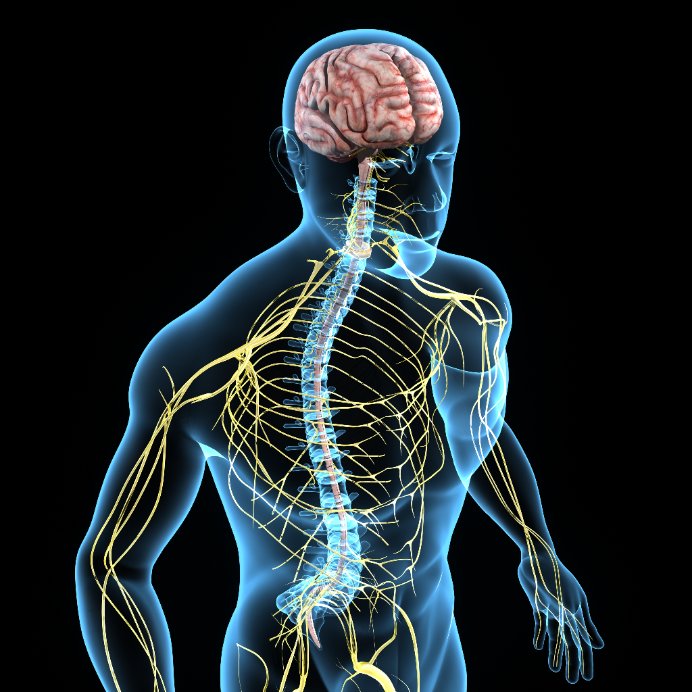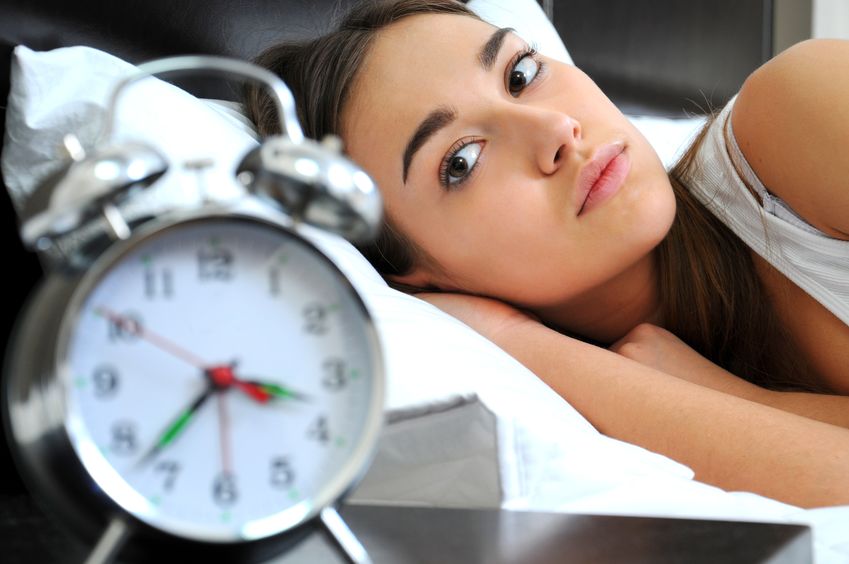According to the CDC, sleep time recommendations are as follows:
| Age Group | Recommended Hours of Sleep Per Day |
| Newborn 0–3 months | 14–17 hours[i] |
| Infant 4–12 months | 12–16 hours per 24 hours (including naps)[ii] |
| Toddler 1–2 years | 11–14 hours per 24 hours (including naps) |
| Preschool 3–5 years | 10–13 hours per 24 hours (including naps) |
| School Age 6–12 years | 9–12 hours per 24 hours |
| Teen 13–18 years | 8–10 hours per 24 hours |
| Adult 18–60 years | 7 or more hours per night[iii] |
| 61–64 years | 7–9 hours |
| 65 years and older | 7–8 hours |
We all know that if we don’t get enough sleep, we are grouchy, tired, and generally miserable the next day. But in spite of knowing the consequences, we sleep less than we should. But grouchy and tired are not the only outcomes of poor sleep habits. The long-term mental and physical abnormalities resulting from inadequate sleep are real and can place you body at great risk.
Causative Factors
Let’s first look at why we sleep poorly.

- taking daytime naps – Poor sleep habits lead to daytime somnolence. Therefore, when we are tired, we tend (as adults) to nap so we can function the remainder of the day. Can you see the vicious cycle here?
- Use of caffeine after noon – Caffeine taken 6 hours before bedtime has important disruptive effects on sleep and provides empirical support for sleep hygiene recommendations to refrain from substantial caffeine use for a minimum of 6 hours prior to bedtime.[iv] It is also important to understand the potential sources of caffeine in today’s diets. Here are a few examples:
- Coffee and tea
- cola
- Energy bars can provide over 50 mg of caffeine, which is actually more than a can of cola.
- Decaf coffee and tea – Decaf does not necessarily mean caffeine-free. The FDA regulations require only 97 percent of caffeine to be removed from the beans for coffee to be marketed as “decaffeinated,” therefore that remaining 3 percent can have an untoward effect on your sleep.
- Varying times for bed (including weekends and holidays)
- Varying waking times
- Eating heavy meals within a few hours of bedtime
- Using electronic devices right before bed
- alcohol intake before bed
Some of the signs that we may notice when we are sleep-deprived may include”
And when we experience those symptoms, don’t depend on stimulants such as caffeine to act as a substitute for the body’s normal sleep requirement.
Physiological Effects

Now that we understand the how’s and why’s of sleep deprivation, let’s look at the resulting physiological issues.
Immune System – Antibodies and cytokines are normally produced by the immune system, which serve to overcome the untoward results of bacteria and viruses. While the processes are extremely complex, suffice it to say that certain cytokines assist in rapid eye movement and other sleep-related functions. Sleep deprivation reduces the production of cytokines, thus rendering the body to potential infections. Additionally, long-term sleep deprivation increases the risk for chronic conditions, such as diabetes mellitus and heart disease.
Central nervous system – During sleep, neuronal pathways assist the brain in assimilating learned information. Therefore, the converse is true – lack of sleep often interferes with cognitive processes while awake and interferes with a normally functioning brain. Sleep-deprived individuals have difficulty with short and long-term memories, retention of learned concepts and processes, general concentration, creativity, decision-making, and an increased propensity for accidents. There have even been hallucinogenic episodes resulting from poor sleep. Those with existing neurological and psychological issues such as bipolar disorder may actually experience manic episodes. Additionally, cases of depression, paranoia, anxiety and even suicide have been reported. Microsleep is an abnormality where, during daytime hours, an individual may fall asleep fort a few seconds without realizing they have done so. during the day. These can be dangerous if undetected, especially if driving or performing other tasks that require alert behavior.
Digestive System – the following digestive abnormalities may occur when sleep-deprived:
Respiratory system – Obstructive sleep apnea (OSA) interrupts sleep and lowers the quality of sleep. This sleep deprivation increases the vulnerability to respiratory diseases and infections.
Cardiovascular system – Individualswho lack sufficient sleep are more likely to develop cardiovascular disease, including the risk of heart attack and stroke.
Endocrine system – Hormone production is partially dependent on sleep. For testosterone production, at least 3 hours of uninterrupted sleep is required, therefore that hormone production is reduced. Testosterone has a significant effect on muscle mass and cellular and tissue repair. Growth hormone produced in the pituitary gland is essential for normal development of youth and adolescents. Any reduction may have a deleterious effect on the growth process.
Treatment
The most obvious treatment for sleep deprivation is to get more sleep! But that’s not always as easy as it sounds. Remedies may be found in the list above in “Causative Factors” section of this article. Let’s look at the remedies for each:
- Avoid any caffeinated product after noon, including coffee, tea, soft drinks with caffeine added, and decaf products.
- Go to bed and wake up at approximately
- Don’t vary the sleep schedule on weekends and holidays, such as “sleeping in.”
- Eat an evening meal before 7 p.m.
- DO NOT use electronic devices such as cell phones, gaming programs and even television within 1 hour of going to bed. Instead, spend time reading, meditating, or just take a bath
- Exercise regularly but avoid exercise immediately before bedtime.
As always, if sleep deprivation remains unresolved, consult the physician to determine the causative factors and suggest further testing and/or remedies.
FEATURED COURSE: Insomnia – Diagnosis & Treatment
Course Information

- Category: CEU
- Price: $15.99
- BRPT Credit: 1.0 CSTE
- CSRT Credit: 1.0 PD/CE
- Includes: Purchase includes Downloadable PDF, Video and access to online test.
Course Description
- Gain a better understanding of the scope of insomnia in the general population.
- Develop an understanding of the differential diagnosis of insomnia.
- Understand the tenets of CBT-i for insomnia.
- Better understand pharmacological agents in managing insomnia.
- Understand the utility of sleep diagnostic testing for those with insomnia.
REFERENCES:
[A] Hirshkowitz M, Whiton K, Albert SM, Alessi C, Bruni O, et al. The National Sleep Foundation’s sleep time duration recommendations: methodology and results summary. Sleep Health. 2015;1(1):40–43.
[B] Paruthi S, Brooks LJ, D’Ambrosio C, Hall WA, Kotagal S, Lloyd RM, et al. Recommended amount of sleep for pediatric populations: a consensus statement of the American Academy of Sleep Medicine. J Clin Sleep Med. 2016;12(6):785–786.
[C] Watson NF, Badr MS, Belenky G, et al. Recommended amount of sleep for a healthy adult: a joint consensus statement of the American Academy of Sleep Medicine and Sleep Research Society. Sleep. 2015;38(6):843–844.
[D] An Overview of the Circadian Clock in the Frame of Chronotherapy: From Bench to Bedside. Vandenberghe A, Lefranc M, Furlan A. Pharmaceutics. 2022 Jul 6;14(7):1424.
FOOTNOTES:
[i] Hirshkowitz M, Whiton K, Albert SM, Alessi C, Bruni O, et al. The National Sleep Foundation’s sleep time duration recommendations: methodology and results summary. Sleep Health. 2015;1(1):40–43.
[ii] Paruthi S, Brooks LJ, D’Ambrosio C, Hall WA, Kotagal S, Lloyd RM, et al. Recommended amount of sleep for pediatric populations: a consensus statement of the American Academy of Sleep Medicine. J Clin Sleep Med. 2016;12(6):785–786.
[iii] Watson NF, Badr MS, Belenky G, et al. Recommended amount of sleep for a healthy adult: a joint consensus statement of the American Academy of Sleep Medicine and Sleep Research Society. Sleep. 2015;38(6):843–844.
[iv] An Overview of the Circadian Clock in the Frame of Chronotherapy: From Bench to Bedside. Vandenberghe A, Lefranc M, Furlan A. Pharmaceutics. 2022 Jul 6;14(7):1424.








